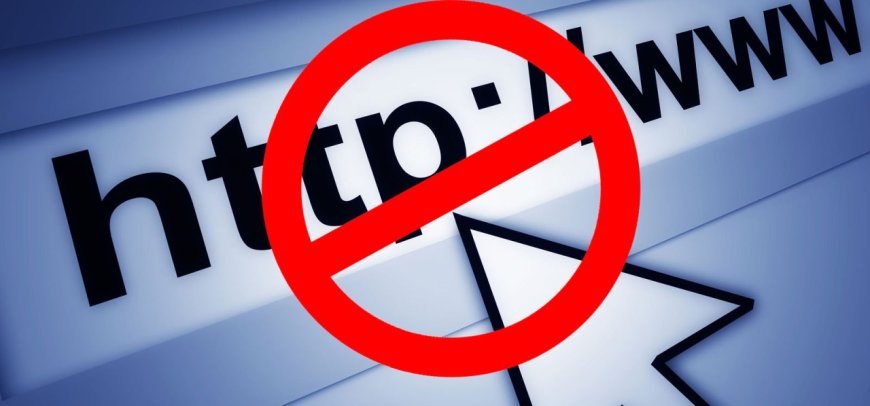Govt To Now Block These Websites & Apps After Ruto Signs Bill Into Law
The legislation was signed into law after Members of Parliament passed it with several changes recommended by the Departmental Committee on Information, Communication and Innovation, led by Dagoretti South MP John Kiarie.

Kenyans should brace for the removal of any online content classified as illegal—whether hosted on websites or shared through digital devices like mobile phones—following President William Ruto’s signing of the Computer Misuse and Cybercrimes (Amendment) Bill, 2024, into law.
The law targets offences involving child pornography, terrorism, and extremist religious or cult-related activity.
Signed on Wednesday, October 15, 2025—the same day former Prime Minister Raila Odinga passed away—the amendment grants the government authority to seek pre-emptive shutdowns of online platforms suspected of enabling criminal acts.
The newly enacted law, which carries significant implications, now grants courts and investigative agencies the power to block websites and applications hosting unlawful material, order their shutdown, and compel individuals to take down harmful content.

Image of a blocked website. /LINKEDIN
These expanded powers stem from the introduction of Section 46A, which gives courts wide-ranging authority to direct the removal of illegal content from digital platforms or devices, suspend non-compliant websites, and authorize swift action in suspected violations.
Under this provision, investigators no longer have to wait for actual harm to occur—they can now petition the court for permission to intervene early and curb the spread of illegal or offensive content before it gains traction online.
“Where an authorised person believes that a computer system, website, or digital device is being used to promote illegal activities, child pornography, terrorism, or extreme religious and cultic practices, the authorised person may apply to court for an order for the removal of the content or materials from the computer system, website, or digital device," reads the new law.
“Computer misuse refers to the unauthorised use, modification, or access to a computer system, program, or data; and cybercrime refers to an offence committed through the use of information and communication technology to target networks, systems, data, websites, or technology, or to facilitate a crime.”
Beyond granting access to electronic devices, the new law broadens the scope of identity theft to cover passwords and makes digital impersonation, data harvesting, and phishing explicitly criminal offenses.
It stipulates that anyone who unlawfully alters or assumes control of another person’s SIM card with the intent to commit a crime faces up to two years in prison, a fine not exceeding Ksh 200,000, or both.
The bill defines a computer system as any physical or virtual device—such as a mobile phone—that uses electronic, magnetic, optical, or similar technology to process, store, communicate, or control data and other devices.
The legislation was signed into law after Members of Parliament passed it with several changes recommended by the Departmental Committee on Information, Communication and Innovation, led by Dagoretti South MP John Kiarie.
While defending the bill, Kiarie emphasized that it strengthens the legal framework by expanding the meaning of identity theft to include passwords and by criminalizing acts such as digital impersonation, phishing, and data harvesting.
“What we are observing is that phishing is becoming the order of the day. We seek to avert these increasing incidences of phishing, which can be executed by use of hyperlinks — stealing identities, money, and private information," he said.
Kiarie noted that Kenyans spend an average of about four hours and twelve minutes online each day, a trend that exposes the nation to risks such as fake news, cyberbullying, and AI-driven misinformation. He explained that the amendments aim to strengthen existing laws amid rising cases of toxic or false content online.
Dagoretti North MP Beatrice Elachi added that the reforms also respond to growing international pressure, especially from the European Union, which has faulted Kenya for inadequate regulation of online child exploitation. She further warned that young Kenyans hoping to study abroad could face setbacks due to their digital footprints.
The proposal had drawn opposition from entities such as the Kenya Information Communication Technology Action Network (KICTANet), comprising over 50 organisations in the private sector, which feared that implementing this bill could give the government unnecessary powers to control Kenyans' freedom of speech in whichever format and reduction of the freedoms of online platforms which offer an alternative method of free speech, including news websites.
"Given Kenya’s recent history of shutting down the Internet in June 2024 and blocking messaging applications like Telegram in November 2023, the proposal does not come as a surprise. It appears to be yet another attempt to formalise and expand government censorship," said KICTANet in a statement in October 2024.







